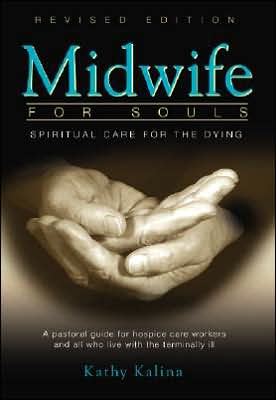Oxford Textbook of Palliative Nursing
Now in its third edition, this landmark textbook has become the key resource for all nurses working in the field of palliative care. Edited by renowned nursing experts Betty Ferrell and Nessa Coyle and written by a dynamic team of internationally known authorities in nursing and palliative medicine, the book contains 78 chapters which cover the gamut of the palliative nursing world. The volume's scope is broad to incorporate principles of care from the time of the initial diagnosis of a...
Search in google:
Now in its third edition, this landmark textbook has become the key resource for all nurses working in the field of palliative care. Edited by renowned nursing experts Betty Ferrell and Nessa Coyle and written by a dynamic team of internationally known authorities in nursing and palliative medicine, the book contains 78 chapters which cover the gamut of the palliative nursing world. The volume's scope is broad to incorporate principles of care from the time of the initial diagnosis of a terminal disease to the end of a patient's life and beyond. This text is distinctively developed to highlight the nurse's vital role as part of an integrated palliative care team. Various care settings are discussed including the hospital, ICU, home care, and hospice settings. While the book does provide some information on disease and pathophysiology when appropriate, the chapters focus on the practical aspects of nursing care, including symptom assessment, patient teaching, family support, psychosocial aspects of palliation, and spiritual care. All of the chapters have been completely updated and reorganized to incorporate new research and emerging models of care. This updated volume includes over 10 new chapters, including an extensively update section on international models of palliative care. In addition, there are many new ethics discussions covering a range of topics from pediatric palliative care to the withdrawal of life sustaining treatment. The text is authoritative and fully evidence-based, without ever losing sight of the humanity and sensitivity necessary in palliative nursing. Doody Review Services Reviewer:Darrell A Owens, DNP, ARNP(University of Washington School of Nursing)Description:This is a reference for nurses practicing palliative nursing full time, as well as for those whose practice includes aspects of palliative care. It covers a multitude of topics, including pain and physical symptom management, psychosocial support, spiritual care, special populations, pediatrics, and international models of palliative care. This edition is more comprehensive than the second edition, published in 2006.Purpose:The third edition comes at a time when palliative nursing has come of age. The objective of the book is to strengthen nurses, individually and collectively, so that they can provide compassionate and competent palliative care. While the objectives of the book are rather grand, they are worthy, and this book, like the previous editions, fulfills them. Audience:The book is written for a broad audience, ranging from nursing students to advanced practice nurses, and includes useful information for those in other disciplines, such as chaplains, social workers, and psychologist or counselors. The editors, both experts in the field, have done an exceptional job of recruiting chapter authors who are specialists in palliative nursing.Features:The section addressing symptom assessment and management is thorough and comprehensive, covering all of the most common symptoms of patients in palliative care. Other sections cover psychosocial support, spiritual care, and issues specific to nurses in palliative care. The section on spiritual care is particularly well written, and provides a comprehensive overview of spiritual care issues, including spiritual assessment. Many chapters include tables that nicely summarize large volumes of detailed information.Assessment:This is considered one of the leading palliative care reference books. Although written specifically for nurses, the comprehensive and interdisciplinary nature of the book makes it a useful reference in a variety of disciplines. Additional chapters in the third edition cover insomnia, withdrawal of life-sustaining treatment, caring for those with chronic illness, palliative care in psychiatric illness, and cancer survivorship, all of which justify replacing the second edition of this exceptional resource.
Forewords Dame Cicely Saunders, Florence Wald, and Jeanne Quint BenolielPreface Part I: General Principles1. Introduction to Palliative Care Nursing Care Nessa Coyle2. Hospice Care in the 21st Century: A Model for Quality End-of-Life Care Kathleen A. Egan City and Mary J. Labyak3. Hospital-Based Palliative Care Marie Bakitas, Margaret Firer Bishop and Paula A. Caron4. Principles of Patient and Family Assessment Elaine Glass, Douglas Cluxton, and Patrice Rancour5. Communication in Palliative Care: An Essential Competency for Nurses Constance M. DahlinPart II: Symptom Assessment and Management6. Pain Assessment Regina M. Fink and Rose M. Gates7. Pain at the End of Life Judith A. Paice 8. Fatigue Paula R. Anderson, Grace E. Dean and Melany A. Piech 9. Anorexia and Cachexia Dorthy Wholihan and Charles Kemp10. Nausea and Vomiting Cynthia King and Dana Tarcutu11. Dysphagia, Xerostomia, and Hiccups Constance M. Dahlin, Audrey Kurash Cohen, and Tessa Goldsmith12 . Bowel Management: Constipation, Diarrhea, Obstruction, and Ascites Denice Caraccia Economou13. Hydration, Thirst, and Nutrition Michelle Schaffner Gabriel, Pam Kedziera, and Nessa Coyle14. Dyspnea, Death Rattle, and Cough Deborah Dudgeon15. Urinary Tract Disorders Mikel Gray and Terran Simms16. Lymphedema Management Mei Fu and Jean K. Smith17A. Skin Disorders: Pressure Ulcers-Assessment and Management Barbara M. Bates-Jensen17B. Skin Disorders: Malignant Wounds, Fistulas, and Stomas Susie Seaman and Barbara M. Bates-Jensen18. Pruritus, Fever, and Sweats Phillip Larkin19 . Neurological Disturbances Judith A. Paice20. Anxiety and Depression Jeannie V. Pasacreta, Pamela A. Minarik, Leslie Nield-Anderson 21. Delirium, Confusion, and Agitation Debra E. Heidrich and Nancy English22. Insomnia Laura Bourdeanu, Marjorie Hein, and Pamela R. Tryon23. Sexuality Marianne Matzo24. Clinical Interventions, Economic Outcomes, and Palliative Care Patrick J. Coyne, Thomas J. Smith and Laurel J. Lyckholm25. Urgent Syndromes at the End of Life Barton T. Bobb26. Sedation for Refractory Symptoms and Terminal Weaning Patti Knight, Laura A. Espinosa27. Complementary and Alternative Therapies in Palliative Care Kate Kravits and Susan Berenson28. Withdrawal of Life Sustaining Treatment Margaret Campbell, Linda Gorman, and Peggy KalowesPart III: The Meaning of Hope in the Dying29. The Meaning of Hope in the Dying Mary Ersek and Valerie T. Cotter30. Bereavement Inge B. Corless31. Supporting Families in Palliative Care Betty Davies and Rose Steele32. Planning for the Actual Death Patricia Berry and Julie GriffiePart IV: Spiritual Care33. Spiritual Assessment Elizabeth Johnston Taylor34. Spiritual Care Interventions Rev. Pamela Baird35. Meaning in Illness Tami Borneman and Katherine Brown-SaltzmanPart V: Special Patient Populations36. Caring for those with Chronic Illness Terri Maxwell37. Cultural Considerations in Palliative Care Polly Mazanec and Joan T. Panke38. Elderly Patients Susan Derby, Sean O'Mahony, and Roma Tikoo39. Poor, Homeless, and Underserved Populations Anne Hughes40. Palliative Care in Psychiatric Illness Betty Morgan41. Patients with Acquired Immunodeficiency Syndrome: Caring from Diagnosis to Long Term Survival or Death Deborah Witt Sherman and Carl A. Kirton42. Caring for the Drug-Addicted Patient at the End of Life Kenneth L. Kirsh, Peggy Compton, and Steven D. Passik43. Cancer Survivorship Mary McCabe and Nancy HoolihanPart VI: End-of-Life Care Across Settings44. Improving the Quality of Care Across All Settings Marilyn Bookbinder45. Long-Term Care Sarah A. Wilson46. Home Care Paula Milone-Nuzzo, Ruth McCorkle, and Elizabeth Ercolano47. The Intensive Care Unit Jennifer McAdam and Kathleen Puntillo48. The Outpatient Setting Jeanne Robison and Anne R. Du Pen49. Rehabilitation and Palliative Care Kathleen Michael and Donna Wilson 50. The Emergency Department Garrett Chan, Margaret Campbell, and Robert Zalenski51. The Role of Nursing in Caring for Patients Undergoing Surgery for Advanced Disease Betty R. Ferrell, Gloria Juarez, and Tami Borneman52. Palliative Chemotherapy and Clinical Trials in Advanced Cancer: The Nurse's Role Virginia SunPart VII: Pediatric Palliative Care53. Symptom Management in Pediatric Palliative Care Melody Brown Hellsten and Glen Medellin54. Pediatric Care: The Hospice Perspective Lizabeth H. Sumner55. Pediatric Care: Transitioning Goals of Care in the Emergency Department, Intensive Care Unit, and in Between Marcia Levetown, Melody Hellsten and Barbara Jones56. End-of-life Decision Making in Pediatric Oncology Pamela S. Hinds, Linda Oakes, and Wayne L. Furman57. Palliative Care in the Neonatal Intensive Care Unit Carole Kenner and Marina Boykova58. Grief and Bereavement in Pediatric Palliative Care Betty Davies, Rana Limbo and Juhye Jin59. Pediatric Pain: Knowing the Child Before You Mary Layman Goldstein and Mayuko SakaePart VIII: Special Issues for the Nurse in End-of-Life Care60. The Advanced Practice Nurse Jay Horton and Roseanne Indelirato61. The Experience of the Nurse in End-of-Life Care in the 21st Century: Mentoring the Next Generation Mary L. S. Vachon and Jayne Huggard62. Ethical Considerations Maryjo Prince Paul and Barbara Daly63. Public Policy and End-of-Life Care: The Nurse's Role Colleen Scanlon64. Palliative Care and Requests for Assistance in Dying Deborah L. Volker65. Nursing Education Denice Sheehan and Pam Malloy66. Nursing Research Betty Ferrell, Marcia Grant and Virginia Sun 67. Teamwork in Palliative Care Shirley Otis-Green and Iris Cohen FineburgPart IX: International Models of Palliative Care68. International Models of Palliative Care Reflecting Various Stages of National Development Nessa Coyle69. Canada Dennie Hycha and Lynn Whitten70. Palliative Care in Australia and New Zealand Margaret O'Connor and Peter L Hudson 71. Palliative Care in the United Kingdom Public Policy and End-of-Life Care: The Nurse's Role Penny Hansford72. Palliative Care in Europe Marianne Jensen Hjermstad and Stein Kaasa73.Palliative Care in Situations of Conflict Nathan Cherny and Ora Rosengarten74. Palliative Care in South America Marta Junin 75. Palliative Care in Africa Faith N. Mwangi-Powel, Henry Ddungu, Julia Downing, Fatia Kiyange, Richard A. Powell, and Abby Baguma76. Palliative Care in Japan Sayaka Takenouchi and Keiko Tamura 77. Palliative Care in South Korea Hyun Sook Kim and Boon Han KimPart X: Conclusion: A Good Death78. Understanding a Good Death Betty FerrellAppendix: Palliative Care Resource List Rose Virani
\ From The CriticsReviewer: Darrell A Owens, DNP, ARNP(University of Washington School of Nursing)\ Description: This is a reference for nurses practicing palliative nursing full time, as well as for those whose practice includes aspects of palliative care. It covers a multitude of topics, including pain and physical symptom management, psychosocial support, spiritual care, special populations, pediatrics, and international models of palliative care. This edition is more comprehensive than the second edition, published in 2006.\ Purpose: The third edition comes at a time when palliative nursing has come of age. The objective of the book is to strengthen nurses, individually and collectively, so that they can provide compassionate and competent palliative care. While the objectives of the book are rather grand, they are worthy, and this book, like the previous editions, fulfills them. \ Audience: The book is written for a broad audience, ranging from nursing students to advanced practice nurses, and includes useful information for those in other disciplines, such as chaplains, social workers, and psychologist or counselors. The editors, both experts in the field, have done an exceptional job of recruiting chapter authors who are specialists in palliative nursing.\ Features: The section addressing symptom assessment and management is thorough and comprehensive, covering all of the most common symptoms of patients in palliative care. Other sections cover psychosocial support, spiritual care, and issues specific to nurses in palliative care. The section on spiritual care is particularly well written, and provides a comprehensive overview of spiritual care issues, including spiritual assessment. Many chapters include tables that nicely summarize large volumes of detailed information.\ Assessment: This is considered one of the leading palliative care reference books. Although written specifically for nurses, the comprehensive and interdisciplinary nature of the book makes it a useful reference in a variety of disciplines. Additional chapters in the third edition cover insomnia, withdrawal of life-sustaining treatment, caring for those with chronic illness, palliative care in psychiatric illness, and cancer survivorship, all of which justify replacing the second edition of this exceptional resource.\ \ \ \ \ From The CriticsReviewer:Darrell A Owens, DNP, ARNP(University of Washington School of Nursing)\ Description:This is a reference for nurses practicing palliative nursing full time, as well as for those whose practice includes aspects of palliative care. It covers a multitude of topics, including pain and physical symptom management, psychosocial support, spiritual care, special populations, pediatrics, and international models of palliative care. This edition is more comprehensive than the second edition, published in 2006.\ Purpose:The third edition comes at a time when palliative nursing has come of age. The objective of the book is to strengthen nurses, individually and collectively, so that they can provide compassionate and competent palliative care. While the objectives of the book are rather grand, they are worthy, and this book, like the previous editions, fulfills them. \ Audience:The book is written for a broad audience, ranging from nursing students to advanced practice nurses, and includes useful information for those in other disciplines, such as chaplains, social workers, and psychologist or counselors. The editors, both experts in the field, have done an exceptional job of recruiting chapter authors who are specialists in palliative nursing.\ Features:The section addressing symptom assessment and management is thorough and comprehensive, covering all of the most common symptoms of patients in palliative care. Other sections cover psychosocial support, spiritual care, and issues specific to nurses in palliative care. The section on spiritual care is particularly well written, and provides a comprehensive overview of spiritual care issues, including spiritual assessment. Many chapters include tables that nicely summarize large volumes of detailed information.\ Assessment:This is considered one of the leading palliative care reference books. Although written specifically for nurses, the comprehensive and interdisciplinary nature of the book makes it a useful reference in a variety of disciplines. Additional chapters in the third edition cover insomnia, withdrawal of life-sustaining treatment, caring for those with chronic illness, palliative care in psychiatric illness, and cancer survivorship, all of which justify replacing the second edition of this exceptional resource.\ \ \ From The CriticsReviewer:This is considered one of the leading palliative care reference books. Although written specifically for nurses, the comprehensive and interdisciplinary nature of the book makes it a useful reference in a variety of disciplines. Additional chapters in the third edition cover insomnia, withdrawal of life-sustaining treatment, caring for those with chronic illness, palliative care in psychiatric illness, and cancer survivorship, all of which justify replacing the second edition of this exceptional resource.\ Description:\ Purpose:This is a reference for nurses practicing palliative nursing full time, as well as for those whose practice includes aspects of palliative care. It covers a multitude of topics, including pain and physical symptom management, psychosocial support, spiritual care, special populations, pediatrics, and international models of palliative care. This edition is more comprehensive than the second edition, published in 2006.\ Audience:The third edition comes at a time when palliative nursing has come of age. The objective of the book is to strengthen nurses, individually and collectively, so that they can provide compassionate and competent palliative care. While the objectives of the book are rather grand, they are worthy, and this book, like the previous editions, fulfills them. \ Features:The book is written for a broad audience, ranging from nursing students to advanced practice nurses, and includes useful information for those in other disciplines, such as chaplains, social workers, and psychologist or counselors. The editors, both experts in the field, have done an exceptional job of recruiting chapter authors who are specialists in palliative nursing.\ Assessment:The section addressing symptom assessment and management is thorough and comprehensive, covering all of the most common symptoms of patients in palliative care. Other sections cover psychosocial support, spiritual care, and issues specific to nurses in palliative care. The section on spiritual care is particularly well written, and provides a comprehensive overview of spiritual care issues, including spiritual assessment. Many chapters include tables that nicely summarize large volumes of detailed information.\ \








